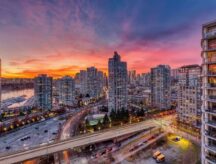Comprehensive FAQ on Canada’s New Immigration Streams for Essential Workers and Graduates
Canada is launching six new permanent residence streams on May 6 at 12 p.m. Eastern Standard Time for essential workers and international graduates currently residing in the country.
Some 90,000 immigration spots will be available. All the information below is based on what is posted on the website of Immigration, Refugees and Citizenship Canada (IRCC) including the application guide it released the afternoon of May 5. The information is also based on technical briefings IRCC has held with immigration representatives on April 21, April 28, and May 4.
The following information focuses on frequently asked questions about the six new immigration streams.
Do you live in Canada? Find out for free if you are eligible for these news pathways!
1. When will the streams launch?
May 6 at 12 p.m. EST.
2. Can I add dependents to my application?
Yes. Spouses, common-law partners, and children under the age of 22 (dependent children may be older if they have a disability) may be included in the application.
3. How can I find out if I am eligible?
CanadaVisa has a free eligibility tool available here.
4. What steps do I need to take to apply?
According to IRCC's website:
Step 1: Find out if you are eligible
Step 2: Gather your documents
Step 3: Complete the application
Step 4: Pay the fees
Step 5: Submit your application
5. What documents do I need to submit?
The application guide is available on IRCC's website.
6. How can I request accommodation if I have a disability?
Please contact IRCC to notify them you need an alternative format application due to your disability. For streams with a cap, you need to ensure your accommodation request is received by May 20, 2021, or before the intake limit has been reached, whichever is later. IRCC will accept requests by email or by phone to its Client Support Centre. If you send an email, please include the following information directed to this address IRCC.BCSU-UCSE.IRCC@cic.gc.ca:
- Full name
- Mailing address
- Telephone number
- Stream you are applying for
- Alternative format you need
- If you wish to receive the format by mail or email
- Confirmation you are requesting accommodation due to a disability
7. What forms do I need to fill out?
Here is a list of the mandatory forms principal applicants need to fill out:
- Generic Application Form for Canada [IMM 0008]
- Schedule A - Background/Declaration [IMM 5669]
- Additional family information [IMM 5406]
- Schedule 3 - TR to PR pathway [IMM 0130]
Some of the other forms you may need to fill out if applicable include:
- Additional Dependents/Declaration [IMM0008 DEP]
- Declaration from Non-Accompanying Parent/Guardian for Minors Immigrating to Canada [IMM 5604]
- Statutory Declaration of Common-Law Union [IMM 5604]
- Use of a Representative [IMM 5476]
8. How will IRCC process applications?
Applications will be processed in the order in which they are received.
Do you live in Canada? Find out for free if you are eligible for these news pathways!
9. How do I submit my application?
IRCC will launch a new online portal for you to submit your application.
The portal will contain a "How to Apply Tool" to help you decide which stream to apply under. There will be a wizard to assess eligibility, which you can skip.
You will have to agree to some terms and conditions. Then you can create an account with your email address and a password. You will get a message sent to the email address you provided with a verification code, which you can copy and paste. After that, you will sign in with your email address and password.
You will see a document checklist including the new IMM 0008 form. You need to ensure you validate your forms and submit them with 2D barcodes. This form does not have a signature. An attestation at the end is considered a signature by the client. The only form that requires a wet signature is the use of a representative form. There is a separate spot to upload this form.
You will also be asked to submit other documentation such as your proof of eligible work or study experience in Canada. There will be additional spots for dependents to add files.
You will then see an acknowledgment and consent form and a privacy statement. There will be a giant blue "Submit your application" button at the end for you to send in your application. Finally, there will be a page that confirms your application has been submitted.
You will have the ability to view your submission after you have filed your application.
10. Can my immigration representative apply for me?
You can retain an immigration representative but you need to upload your application onto IRCC's website yourself. IRCC has stated "Only applicants can access and upload their documents through the intake portal. Representatives cannot access the portal for their clients. This is because applications must be electronically signed in the intake portal."
11. I am eligible for both an essential worker and international graduate stream. Can I submit multiple applications?
Yes, you can. You will need to pay the application fee twice.
12. Which stream will my application be processed under if I am eligible for multiple streams?
You get to choose the stream. This option will be available to you when you submit your application.
13. I am currently not working (e.g., I am out of work, on maternity leave, on sick leave, temporarily laid off, etc). Can I apply?
No, it is listed in the eligibility criteria that you need to be currently employed in any job (the occupation and whether it is full or part-time does not matter as long as you meet all other eligibility requirements).
14. What is the application fee?
It is $1,050 for principal applicants. There may be other fees you also need to pay (e.g., if you are adding dependents to your application).
15. What is the processing standard?
We do not know yet. In its May 4 technical briefing, IRCC said it expects to process 40,000 applications in 2021.
16. Will I need to submit my IELTS General Training or CELPIP score with my application?
Yes.
17. I hold a study permit. Am I eligible to apply?
Yes, as long as you meet all the other eligibility criteria of one of the streams.
18. Can my work experience as an international student in an essential occupation be used under one of the essential worker streams?
Yes, you can apply, as long as you obtained at least 1,560 hours of Canadian work experience in the last three years in an essential occupation.
19. Does my current job need to be in an essential occupation for me to be eligible?
No, you just need to show you got 1,560 hours of Canadian work experience in the last three years in an essential occupation for one of the essential worker streams.
Those wishing to apply under a graduate stream do not need to demonstrate they have work experience in an essential occupation.
20. What sort of job do I need now to be eligible under an international graduate stream?
Any job is fine (in any occupation and whether it is full-time or part-time), as long as it is paid and salaried employment (unpaid work or self-employed work does not count).
21. Can I apply if I am currently on maintained status (formerly known as implied status)?
Yes.
22. Can I apply while I wait for my Post-Graduation Work Permit (PGWP) application to be approved?
Yes.
23. Can I apply if I have already submitted an Express Entry profile, or have received a permanent residence invitation, or have applied under another immigration program?
Yes. You will need to pay the respective application fees for each option you pursue.
24. Do I need to get an Educational Credential Assessment (ECA) for my foreign education?
No. Foreign education is not assessed under these streams so you are not required to submit an ECA with your application.
25. Can my self-employed work experience in an essential occupation in Canada count towards the 1,560-hour work experience requirement for the essential worker streams?
No, self-employment does not count unless you are a medical doctor that fulfills other eligibility criteria. You must show you were working as an employee.
26. How can I demonstrate my intention to live elsewhere in Canada if I live in Quebec or previously lived in Quebec?
Candidates can show proof such as their plans to move outside of Quebec, their new place of residence, whether they have employment in another province or territory, etc.
27. Do I need to submit my medical at the time of application?
No.
If you have previously completed an immigration medical exam (IME), you are welcome to submit this information at the time of your application. If the IME cannot be used for this permanent residence application, IRCC will notify you that you need to complete a new IME. If you have not completed an IME before, IRCC asks you make every effort possible to complete it before applying. If you are unable to complete your IME before applying due to COVID-19 related interruptions, IRCC asks you to provide proof at the time of your application that you have scheduled a medical appointment with a panel physician.
28. What happens after I submit my application?
Once you submit your application IRCC will conduct a completeness check to make sure:
- all required forms have been properly completed and submitted
- the processing fee has been paid
- all required documents from the application guide have been submitted
After your application is received you will get an Acknowledgment of receipt via email that:
- notifies you your application has been received and provides you with your IRCC application number
- provides basic information for contact with the IRCC office that will process your file
- gives you a short outline of future processing steps
IRCC recommends you link your application to your online account once you receive your application number so you can get the most up-to-date case status information, get online updates for your application, and change your Sign-In Partner or switch to a GCKey.
An IRCC officer will then conduct a detailed review of your application. If your application is successful, you (and your family members if applicable) will receive Canadian permanent resident status.
29. How can I avoid delays to my application?
IRCC notes the following may delay processing:
- copies of documents that are not clear
- IRCC needs to verify your information and documents
- a medical condition that requires you to complete more tests or consultations
- criminal or security problems
- IRCC needing to consult with other offices in Canada or abroad
You can check your application status by creating an online account.
30. What can I do to make sure my application is processed as quickly as possible?
IRCC advises you to:
- send all documents and information requested in your application
- pay your application fees and biometrics fees (if required)
- provide your biometrics as soon as you can (if required)
- notify IRCC in the event your contact information changes
Do you live in Canada? Find out for free if you are eligible for these news pathways!
© CIC News All Rights Reserved. Visit CanadaVisa.com to discover your Canadian immigration options.
- Do you need Canadian immigration assistance? Contact the Contact Cohen Immigration Law firm by completing our form
- Send us your feedback or your non-legal assistance questions by emailing us at media@canadavisa.com







